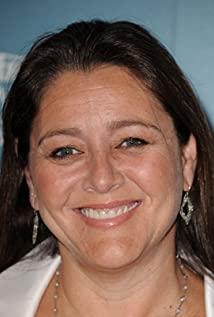After looking at it, I discovered that there are many familiar celebrities in it! But there is no use other than the heroine Connally, although the story is not bad, the emotions are also sincere, and the actors perform well. But the atmosphere and mood in the original story can be said to be completely absent here. It's a few minutes longer than the original Japanese version, but it's just a little bit superfluous.
For example, did the two gangsters try to highlight the social security of the United States or the suspicion of the heroine? There is really no need for existence. In the original film, the memories of the heroine when she was a child and the relationship with her parents are still very important for the character portrayal of the plot, but here it is so strange that it can be completely taken away. Don’t look at the film being longer than Japan’s, but the foreshadowing of supernatural phenomena has not yet gained a place in the Japanese version. The newly added washing machine haunted section may seem scary and skillful, but in fact it actually seems to be helpful in promoting the development of the next plot. Characterization is also useless.
Especially with regard to the important intention of water stains: the original version uses more side pages to depict it, but it does not give it too much in-depth presentation, giving people a sense of objective existence but mysterious and obscure. In the US version, the attitude towards water stains is much more rude: sometimes and sometimes, if you don’t look at it, it will not be there; as soon as you stare at it, it will drip to death, and there will be a "volcanic eruption" and the spring breeze blows. Born again... In the middle, I simply pulled it apart. The nausea is disgusting, but the mysterious and treacherous mood is gone. If it’s an American Cult film today, it’s okay to do so, but it’s not too appropriate to put it in such a ghost story with a deep oriental charm and related to family relationships.
I still feel that the image of the somewhat silent and deliberate daughter in the Japanese version seems to be more deeply rooted in the hearts of the people. The daughter of the American version is very sunny and smart, and she has a lot of man-machine skills, so she has nothing to say. In terms of personal image alone, I prefer the United States, but the lively image in such a movie will weaken the film’s style image and the coordination of the plot.
In the second half of the climax part, the girl just found and turned in the girl's body, and the girl launched a general attack on the protagonist and the mother and daughter. Is this anxious because the base camp was taken? The original two scenes of "Bathroom Misidentification" and "Elevator Save the Girl" were roughly merged into "Bathroom Save the Girl", and the scene in the Japanese elevator is one of the most exciting parts of the film: the young girl The ghost's startled glance and tightly pinched the neck of the misidentified heroine, and finally the heroine gave up her life to save her...The plot and the scene are very simple, but the emotions are strong and full of tension. It is a pity that the new version has deleted all these advantages.
When I got here, just after I figured out what was going on, the mother and daughter hurriedly greeted Shui Liandong to bid farewell, completely losing the emotional foreshadowing and most of the essence of the original film. Then the thing that made me most dumbfounded was the group of policemen. Just after collecting a girl, I had to come and collect my mother again. The overhead shots in the film were too lazy to change and were posted twice. The policemen in the film were bothered. But the director's editing can be convenient. Although it’s really not good to copy photos and copy, it’s not as good as just copying the original. At least it can leave a good impression on viewers who haven’t seen the original.
Having said these dissatisfaction, the US version still has something to be affirmed. For example, the image of the father and the description of the relationship between the husband and wife are more three-dimensional and full of warmth than the cold original version. In addition, I personally think that the ending of the film is well handled. I dare not say that it surpasses the original version. However, the two Japanese and American films have a strong affection and a clever design. They have different styles. Personally, I think the difference between the two films at the end of the film just reflects the cultural difference between the Japanese and American films and even the humanities and society, which is quite interesting.
View more about Dark Water reviews











